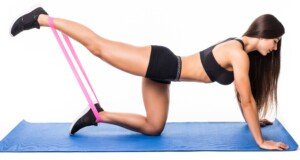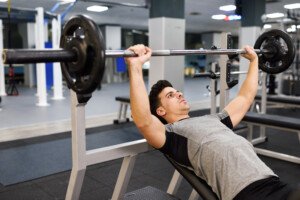
So should you exercise before breakfast or work out after breakfast?
What a conundrum for many health-conscious people including those who are struggling to lose weight.
“Some people feel great working out on an empty stomach and can get through a workout just fine,” says Sara Artigues, a registered dietician and certified personal trainer out of New Orleans.
“There are some theories that working out while still ‘fasting’ taps into fat stores after your stored glucose (in short supply after fasting all night) is used up.”
“Working out when you haven’t eaten at all yet, your body is relying solely on stored energy.
“Depending on when you had dinner the night before, what it consisted of, and your personal metabolism/digestive system, you may be able to get a great workout in while still ‘fasting’ from the night before.
“Others may feel lightheaded and weak trying to exercise on a completely empty stomach.”
Here are some very interesting variables you should consider:
• Your general state of physical durability. Some people have a high threshold for physical punishment following an overnight fast before adverse effects begin setting in.
• Some people may feel weighed down when exercising hard on a full stomach. They may worry that some of their body’s energy is being diverted to digestion rather than fully on the workout.
• Type of exercise also must be considered. A person generally doesn’t need to have breakfast before doing 30 minutes of steady-state walking on a treadmill.
• Food in one’s stomach, while that person does jumping drills or sprints, might give them stomach discomfort.
• Diabetes and pregnancy mean a certain breakfast before any exercise, though the breakfast need not be full-course such as a bowl of cereal, two pieces of toast with jam, coffee and a blueberry muffin.
• You may begin exercising on an empty stomach in the morning, but then every 15 minutes munch on grapes, apple slices, or sip a fruit smoothie or kefir.
• But remember this: Nobody ever failed at a weight loss plan because they had a little something to eat prior to a morning workout.
Breaking the fast does not mean three pancakes smothered in butter, a few sausage links, two eggs and a glass of orange juice – a meal laden with simple carbohydrates and processed fare — before you go head off to the gym.
“For those who need a small pickup early morning, choose a light (low fat) whole grain bar, one-half banana or other piece of fruit, one piece of toast w/ cream cheese or peanut butter if that settles well with you,” suggests Artigues.
“Nothing very heavy. When you eat a healthy breakfast afterward, you’re replenishing your body providing repair and rebuilding of the muscle breakdown by eating protein, and replenishing of glucose stores for energy.
“Have a meal consisting of lean protein, complex carbs and if possible, vegetables for the best post-workout breakfast.
“It’s also helpful have this meal within two hours of finishing your workout. Don’t forget to hydrate with water too!”
Hard Workout on Empty Stomach in the Morning: Training for a Crisis
A healthy person may want to consider skipping breakfast before a tough workout – in the name of training their body to adapt to physical exertion on top of an overnight fast.

Freepik.com
The reason? You’ll never know when you’ll be placed in this circumstance: a morning emergency and no time to eat first.
Or, the emergency that requires physical exertion may occur later in the day – when your stomach has been empty for several hours.
Sure, you may be able to grab a peach or banana amid the crisis, but there may also be an event in which you’re not able to think about food, and instead are thrust into emergent physical exertion (e.g., having to physically move acutely-ill person; intercepting a crime; house is flooded – who knows?!).
However, if you want to train your body to be more durable with physical exertion minus a preceding breakfast, it’s wise that you do this with fast-acting carbs on hand.
 Lorra Garrick is a former personal trainer certified by the American Council on Exercise. At Bally Total Fitness she trained clients of all ages for fat loss, muscle building, fitness and improved health.
Lorra Garrick is a former personal trainer certified by the American Council on Exercise. At Bally Total Fitness she trained clients of all ages for fat loss, muscle building, fitness and improved health.
 Sara’s training services include fitness/body composition assessments, nutrition planning, customized programs and spin class instruction for a variety of clients.
Sara’s training services include fitness/body composition assessments, nutrition planning, customized programs and spin class instruction for a variety of clients.
.









































